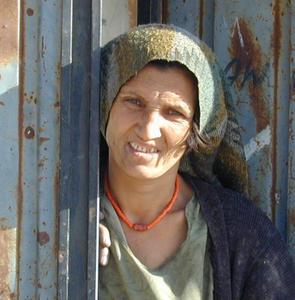|
Afghanistan Women
The Importance of Afghanistan Women and Why They Need a Unique Approach Fifty percent of the Muslims in the world are female. That's at least 450 million individual women in more than 50 countries.Yet, in spite of their significance, Muslim women are one of the largest "hidden people" groups in the world! They are not only "hidden" in their own culture (in the background, not in the public eye), but they are "hidden" in the aid effort, as well. Most humanitarian projects and school courses on Islam are developed by men who have worked with men, and are therefore slanted toward strategies that apply to men. Very little has been written to address the needs of Afghanistan women. Their needs tend to be quite different. They are not so much intellectual and theological as psychological and emotional. Insecurity, fear of illness, fear of death and rejection are some of the main concerns of Muslim women. They have a strong need for power and control. This makes them open to the occult and animistic practices (amulets, curses, the evil eye, etc.). Afghanistan women are often treated as "property," with few of the rights we take for granted. Some of their social concerns are: equal access to divorce, child custody and inheritance, abolition of female circumcision and laws regulating the age of marriage. Dr. Samuel Zwemer, one of the first cultural anthropologists of the Arab Muslim world in the early twentieth century, underlined the importance of work among Muslim women. He said, '[...] the mother's influence over children, both boys and girls, up to about ten years of age, is paramount and women are the conservative element in the defense of their faith, we believe that [far more emphasis on work for Muslim women] is essential.' More recently, a Middle East leader commented on the strategy of Islamic Fundamentalists, stating that they understand the key role of women to their movement. They believe women have the most significant influence upon the next generation. Women's greatest power lies in their ability to influence. Afghanistan women are no exception. They have a big influence upon their children, especially their sons, and when their sons marry, their daughters-in-law. I. The Critical Role of Relationship With Afghanistan Women It has been said that in many cultures of the world a relationship is more important than the time it takes. This is certainly true among most Muslim cultures. As Westerners, always in a hurry, we want our relationships to "take off" too. Western and Eastern values are very often in conflict, and this is one of those areas. For example, Middle Eastern people prefer a long-term, slow-developing friendship. When we come on too strong or very friendly', we make them suspicious and can turn them off. Americans are doers. We usually develop relationships around activity. Middle Easterners don't need activity to develop a friendship. They often prefer to sit and visit over a cup of coffee. Americans schedule relationships. This can be offensive to Middle Eastern people, who have a much looser concept of time. Their relationships take priority over schedules ~ Because the Middle East is a high context culture, people want quantity as well as quality time. They enjoy talking about the "nonessentials" we would consider a waste of time. Good friends in Middle Eastern culture are more physical. They talk to you closer, hold hands, kiss on the cheeks and make more eye contact (although only with the same sex). They can't figure out Americans! "They're friendly but so 'cold,'" they say of us. You need to be believable so that Afghan women will have confidence in you. That's called credibility. One major way to have credibility from the very beginning of your relationship is to be introduced by someone they know and believe in. Another way to gain credibility is to identify with your Muslim friend in as many ways as possible. Whatever a person is like, I try to find common ground with him or her. You may find areas of common ground in food, music, stories, games, sewing, language, prayer and their Holy book. Finally, you can gain credibility by being a learner. Seek to understand and appreciate her religion, culture and values.As your friendship with an Easterner develops, she will have more and more expectations of commitment, time, loyalty and sacrifice. You need to ask yourself if you are prepared to meet those expectations. However, even good friends in Eastern culture rarely share their deep, inner feelings. They have a great fear of being exposed and gossiped about, and it's considered a "shame" to share personal information outside the family. So don't expect a deep level of communication to develop quickly. There are no shortcuts to develop friendships with Muslims, specifically Afghan women. Relationships take time. Credibility takes time. Don't be in a hurry. Enjoy the process! It will prob¬ably take longer than you think, but it's worth it. II. Working with Afghanistan Women in the Context of Their Families Western culture places extreme value upon the individual and his or her rights. In contrast, Eastern culture values interdependence within the family unit and the community. This greatly affects women. They are not free to make independent decisions. Decisions are made by the group and primariIy by the men. This must be kept firmly in mind. The Muslim woman cannot be separated from her family and treated as an autonomous individual. Source: Guest Author
From Afghanistan Women to Home
|
